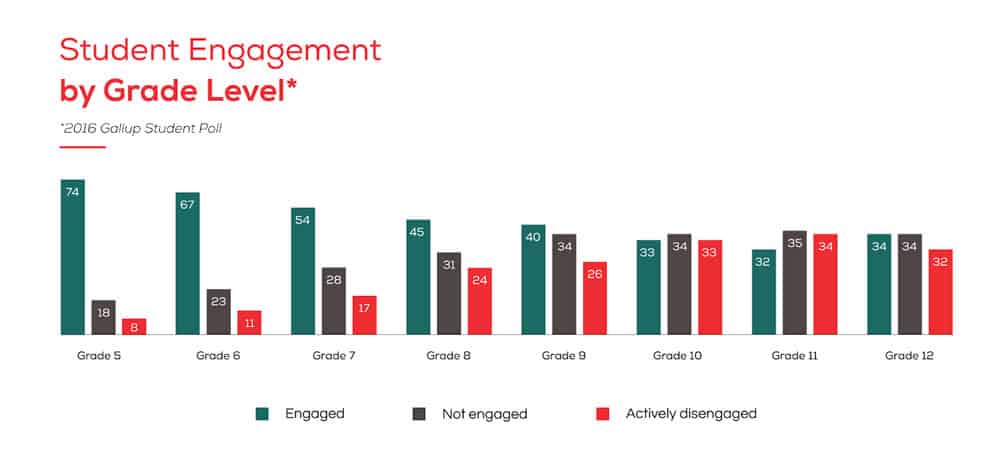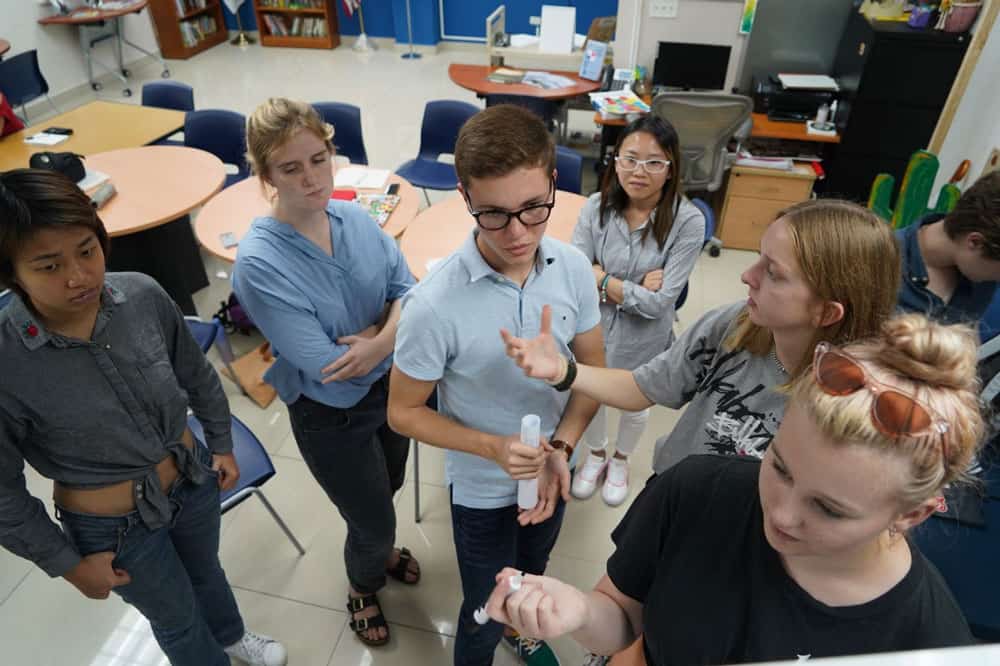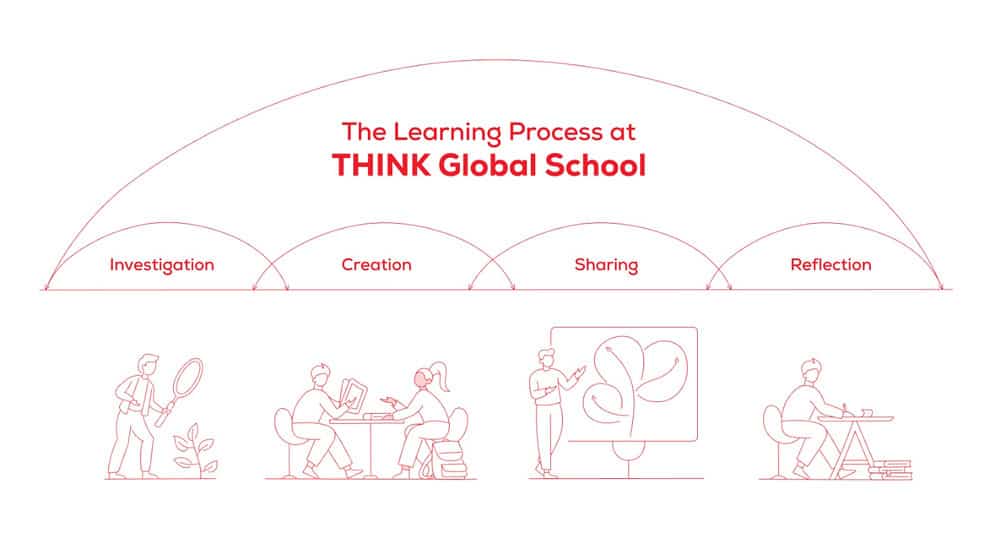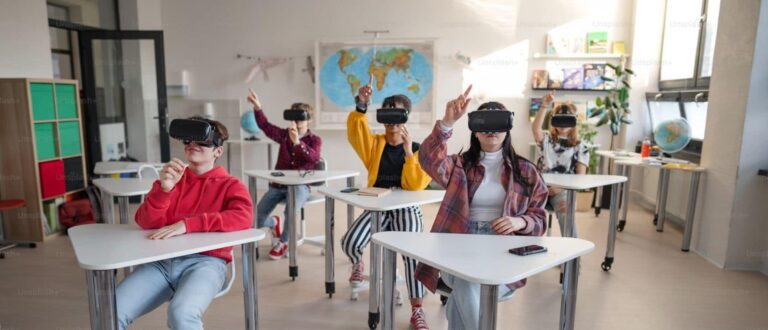When selecting a boarding school, there are many factors parents need to keep in mind: campus location, student population size, tuition, just to name a few.
But one thing that parents might not be aware of when deciding on a school is the type of curriculum employed. For some parents, the time-tested International Baccalaureate is a no-brainer. Increasingly, however, parents are looking for a curriculum that takes their child’s individual needs into account.
Standard curriculums like the IB offer a teacher-led approach, where the student learns passively. Classes typically consist of an educator lecturing students from the front of a classroom with vast amounts of homework assigned from textbooks. It’s rote learning through and through, with students being expected to memorize lofty materials ahead of exams that dictate their future.
A Gallup research poll shows that the standard approach to learning leads to a lack of engagement within students and an overall decrease in mental health.

In elementary school, 76% of students are engaged, but that number drops to 44% by the time they enter high school. If a school is doing what it should to provide a proper education, that number should be increasing, not plummeting off of a cliff.
A Critical Development Period
One reason for this decline is that adolescence is one of the most critical developmental stages. Teenagers begin to think abstractly and develop socially and emotionally. When all students are expected to participate in the same lectures, take the same standardized tests, and essentially receive the same education, regardless of their needs, you can see why disengagement and stress occur.
So what are the alternatives? Fortunately, there are many. Today I’d like to introduce a pedagogy that focuses on empowering students and building within them the skills they’ll need to succeed at university and beyond: project-based learning (PBL).
What is Project-Based Learning?
Simply put, project-based learning has students learn by participating in projects based on relevant driving questions.
The main difference between a standard classroom approach and project-based learning is that students are much more in charge of their learning during PBL. Rather than simply listening to lectures and taking tests, participants in project-based learning participate in meaningful projects that encourage deeper learning and the solving of complex problems. The other key differentiator is that project-based learning focuses on incorporating real-world issues into each project. This makes the project work more meaningful and allows the student to solve problems with local implications.

Switching from the IB Diploma Programme to a project-based learning curriculum was the best thing we ever did for our students. We can see a sizable increase in engagement, autonomy, goal orientation, and belongingness. I would recommend every parent consider a project-based learning school.
Adnan Mackovic, THINK Global School Principal
Projects can vary in length. At THINK Global School, projects typically last eight weeks (an entire term), but they might last only a day, a week, or even span a whole year at other schools.
It should be noted that while students have more freedom during project-based learning, it is just as rigorous, if not more so, than traditional learning. Students regularly engage in discussions individually, in groups, and with the whole class, which is in stark contrast to teacher-led learning, where the teacher typically guides all discussions.
Project work is expected to be of high quality. At the end of the project, the teacher provides feedback on what the student did well and offers suggestions on how they can improve. This feedback cycle ensures that the student is constantly growing, as it can be applied to subsequent projects. This is known as skills mastery, where the student improves over time by building upon existing skills. Through skill mastery, students arrive at university equipped with a substantial skillset and an idea of what they want to do with their lives.

Learning Should Be Messy
One of the brilliant things about project-based learning is it’s messy. Students learn through an iterative process of investigation, creation, sharing, and reflection on their way to designing a high-quality final product. This process often takes students out of their comfort zone initially as they try to determine how to approach the project. Oftentimes, they’ll need to go back to the drawing board until things click, but the resilience they build during the course of their actions is a valuable part of the process and a tangible skill that is vital in the real world.
Most importantly, project-based learning imparts skills that are useful in university and the professional setting. The world of work has changed, but students gain many skills that prepare them for it through project-based learning. According to research from Getting Smart, a leading education publication, six of the main benefits are:
- Participating in Immersive experiences that resemble real-world work
- Receiving real-time feedback on projects
- Collaborating in teams
- Public speaking (most projects require a student to present their findings)
- Personalized learning
- Building expertise
Solving Important Questions
At the heart of every project is a driving question for the student to answer. These driving questions are open-ended inquiries that can be considered a starting point for the project. It’s the student’s responsibility to use 21st-century skills like critical thinking, communication, collaboration, and creativity to arrive at a solution to this driving question.
When forming the driving Question, the educator keeps in mind all of the resources that the student will need to arrive at their conclusion. In most instances, the educator integrates multiple subjects into the project at once, ensuring a student receives a comprehensive education. So rather than have a teacher lecture for an hour on science then an hour on math, project-based learning allows students to combine subjects in real and meaningful ways.
Incorporating the Real World
Another significant benefit of project-based learning is that students are regularly “learning by doing” in their local community. Learning is experiential, meaning students engage in activities that require them to be active participants, rather than the traditional classroom experience where they passively learn.
At THINK Global School, place-based learning is a vital part of its project-based curriculum. Each year students at THINK Global School travel to four different countries, and its students take part in projects specific to each location. In Botswana, students participate in projects that revolve around conservation. In India, they learn about sustainability by interacting with the local community and hearing firsthand about their experiences with water shortages. While this is experiential learning on steroids, any school can maximize its local community and environment similarly. You’d be surprised how many people are willing people are to share their knowledge when asked!

By migrating outside of the classroom and into the local community, the projects become more meaningful and engaging. Local businesses provide opportunities to develop valuable skills like digital literacy and entrepreneurship. Local experts regularly serve as project mentors and guest speakers, lending their expertise and providing a channel for students to bounce ideas off and field career advice.
Learn More
I hope you’ve enjoyed this introduction to project-based learning. You can learn more about THINK Global School and its project-based learning curriculum by visiting its profile here.







